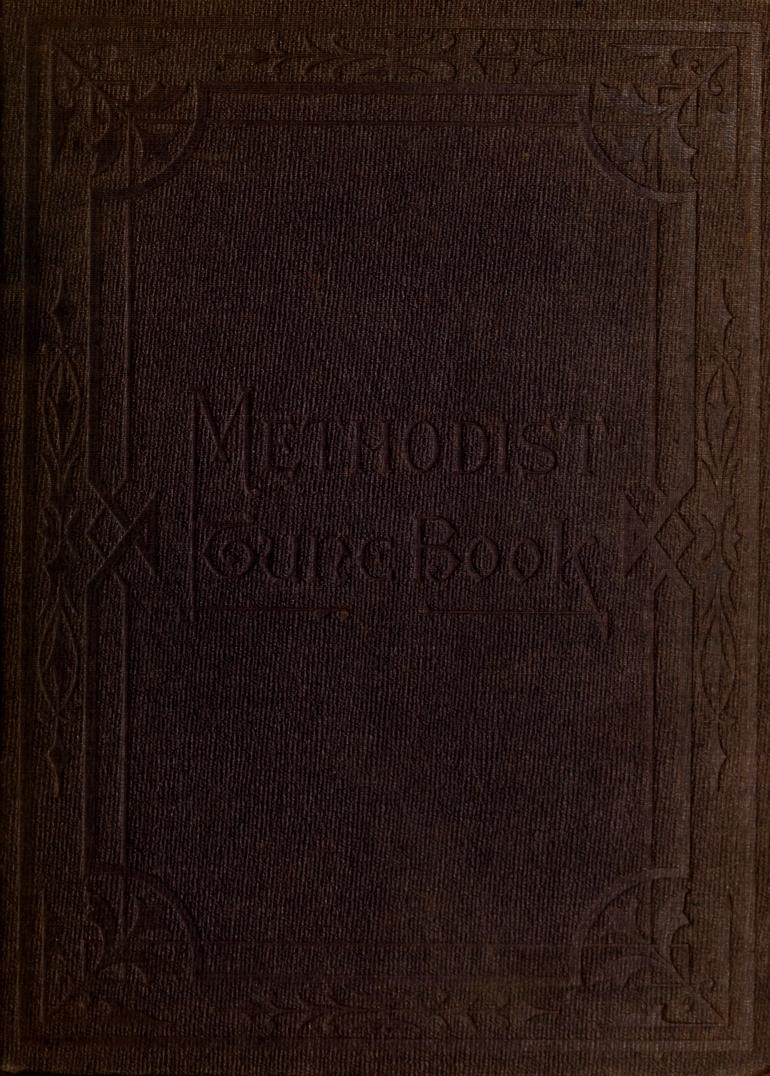Planning worship?
Check out our sister site, ZeteoSearch.org,
for 20+ additional resources related to your search.
- |
User Links
Search Results
Methodist Tune Book

Publication Date: 1881 Publisher: Methodist Book and Publishing House/Methodist Book Room Publication Place: Toronto/Halifax Editors: Methodist Book and Publishing House; Methodist Book Room
Methodist Tune Book
Unchangeable, all-perfect Lord
Meter: 8.8.8.8 Appears in 15 hymnals Used With Tune: GERMANY
Unchangeable, all-perfect Lord
O thou, to whose all-searching sight
Meter: 8.8.8.8 Appears in 391 hymnals Used With Tune: HAMBURG
O thou, to whose all-searching sight
Sun of my soul, thou Saviour dear
Meter: 8.8.8.8 Appears in 1,436 hymnals Used With Tune: HURSLEY
Sun of my soul, thou Saviour dear
O King of kings, thy blessing shed
Hymnal: MTB1881 #1 (1881) Meter: 8.8.8.8 Languages: English Tune Title: ALBION
O King of kings, thy blessing shed
Eternal depth of love divine
Hymnal: MTB1881 #2 (1881) Meter: 8.8.8.8 Languages: English Tune Title: ANGELS' SONG
Eternal depth of love divine
Unveil thy bosom, faithful tomb
Hymnal: MTB1881 #3 (1881) Meter: 8.8.8.8 Languages: English Tune Title: BARTHOLDY
Unveil thy bosom, faithful tomb
Samuel Webbe

1740 - 1816 Person Name: Webbe Hymnal Number: 71 Composer of "BELMONT" in Methodist Tune Book Samuel Webbe (the elder; b. London, England, 1740; d. London, 1816) Webbe's father died soon after Samuel was born without providing financial security for the family. Thus Webbe received little education and was apprenticed to a cabinetmaker at the age of eleven. However, he was determined to study and taught himself Latin, Greek, Hebrew, French, German, and Italian while working on his apprenticeship. He also worked as a music copyist and received musical training from Carl Barbant, organist at the Bavarian Embassy. Restricted at this time in England, Roman Catholic worship was freely permitted in the foreign embassies. Because Webbe was Roman Catholic, he became organist at the Portuguese Chapel and later at the Sardinian and Spanish chapels in their respective embassies. He wrote much music for Roman Catholic services and composed hymn tunes, motets, and madrigals. Webbe is considered an outstanding composer of glees and catches, as is evident in his nine published collections of these smaller choral works. He also published A Collection of Sacred Music (c. 1790), A Collection of Masses for Small Choirs (1792), and, with his son Samuel (the younger), Antiphons in Six Books of Anthems (1818).
Bert Polman
Samuel Webbe
John Bacchus Dykes

1823 - 1876 Person Name: Rev. Dr. Dykes Hymnal Number: 21 Composer of "INTERCESSION" in Methodist Tune Book As a young child John Bacchus Dykes (b. Kingston-upon-Hull' England, 1823; d. Ticehurst, Sussex, England, 1876) took violin and piano lessons. At the age of ten he became the organist of St. John's in Hull, where his grandfather was vicar. After receiving a classics degree from St. Catherine College, Cambridge, England, he was ordained in the Church of England in 1847. In 1849 he became the precentor and choir director at Durham Cathedral, where he introduced reforms in the choir by insisting on consistent attendance, increasing rehearsals, and initiating music festivals. He served the parish of St. Oswald in Durham from 1862 until the year of his death. To the chagrin of his bishop, Dykes favored the high church practices associated with the Oxford Movement (choir robes, incense, and the like). A number of his three hundred hymn tunes are still respected as durable examples of Victorian hymnody. Most of his tunes were first published in Chope's Congregational Hymn and Tune Book (1857) and in early editions of the famous British hymnal, Hymns Ancient and Modern.
Bert Polman
John Bacchus Dykes
William B. Bradbury

1816 - 1868 Person Name: W. B. Bradbury Hymnal Number: 35 Composer of "OLIVE'S BROW" in Methodist Tune Book William Bachelder Bradbury USA 1816-1868. Born at York, ME, he was raised on his father's farm, with rainy days spent in a shoe-shop, the custom in those days. He loved music and spent spare hours practicing any music he could find. In 1830 the family moved to Boston, where he first saw and heard an organ and piano, and other instruments. He became an organist at 15. He attended Dr. Lowell Mason's singing classes, and later sang in the Bowdoin Street church choir. Dr. Mason became a good friend. He made $100/yr playing the organ, and was still in Dr. Mason's choir. Dr. Mason gave him a chance to teach singing in Machias, ME, which he accepted. He returned to Boston the following year to marry Adra Esther Fessenden in 1838, then relocated to Saint John, New Brunswick. Where his efforts were not much appreciated, so he returned to Boston. He was offered charge of music and organ at the First Baptist Church of Brooklyn. That led to similar work at the Baptist Tabernacle, New York City, where he also started a singing class. That started singing schools in various parts of the city, and eventually resulted in music festivals, held at the Broadway Tabernacle, a prominent city event. He conducted a 1000 children choir there, which resulted in music being taught as regular study in public schools of the city. He began writing music and publishing it. In 1847 he went with his wife to Europe to study with some of the music masters in London and also Germany. He attended Mendelssohn funeral while there. He went to Switzerland before returning to the states, and upon returning, commenced teaching, conducting conventions, composing, and editing music books. In 1851, with his brother, Edward, he began manufacturring Bradbury pianos, which became popular. Also, he had a small office in one of his warehouses in New York and often went there to spend time in private devotions. As a professor, he edited 59 books of sacred and secular music, much of which he wrote. He attended the Presbyterian church in Bloomfield, NJ, for many years later in life. He contracted tuberculosis the last two years of his life.
John Perry
William B. Bradbury


 My Starred Hymns
My Starred Hymns


